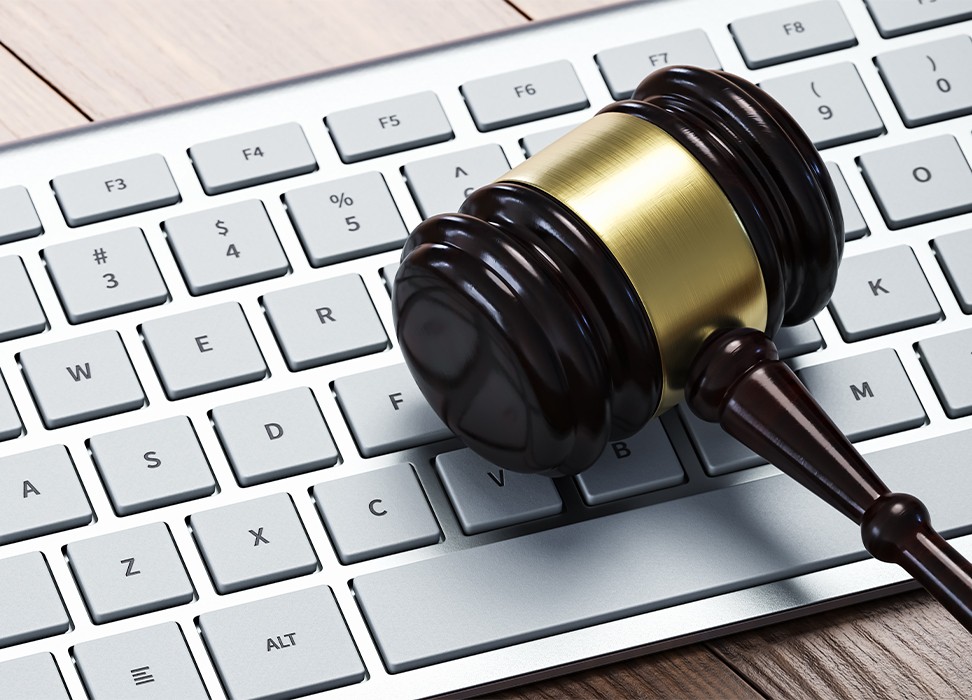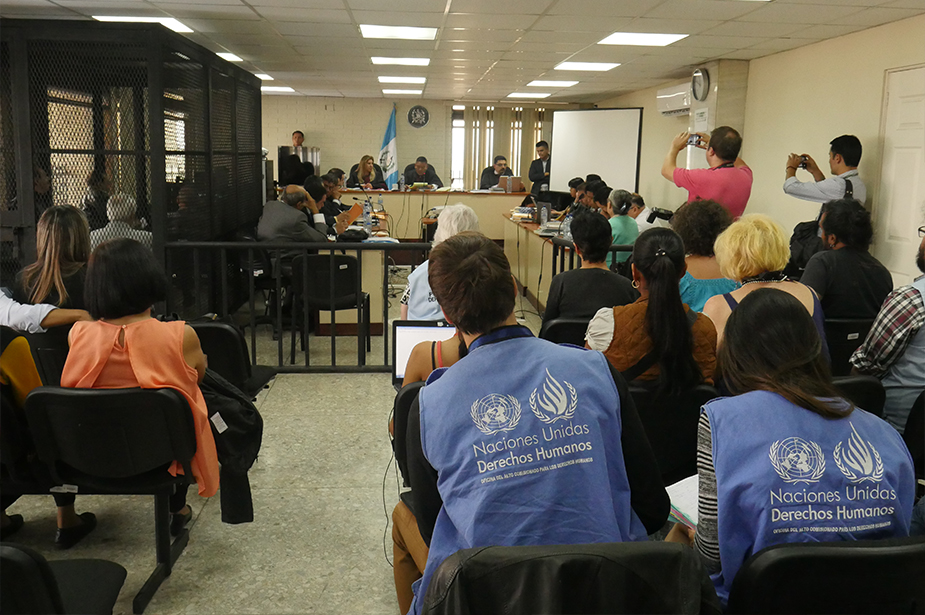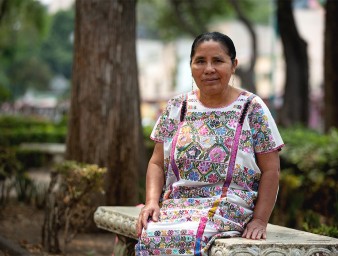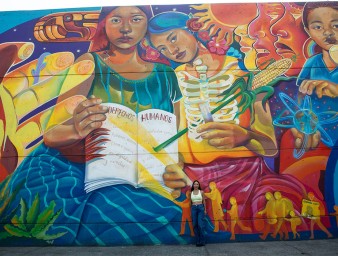Trial monitoring to protect the right to a fair trial
17 August 2023

“At least 253 million people live in extreme situations of injustice and 4.5 billion people are excluded from the opportunities the law provides. One billion women lack protection from sexual violence by an intimate partner,” said UN Human Rights Chief, Volker Türk, in an Open Letter to UN Member States on the occasion of the 75th anniversary of the Universal Declarations of Human Rights (UDHR).
Access to justice is enshrined in the UDHR through its preamble and several of its articles, and is highlighted in Sustainable Development Goal 16, which calls to provide access to justice to all. While the Declaration has helped many find justice – by helping set standards and changing laws and practices and providing avenues for people to claim their rights in national and international courts and tribunals, as Türk and others point out, many others are still seeking it.
During the COVID-19 pandemic, although many States took extraordinary measures to protect the health of their populations, some of these measures resulted in restricting people’s freedom of movement and by extension affected courts’ operations.
One solution found by States to allow courts to continue to function and improve the right to access to justice was the use of online platforms and other technologies to conduct remote hearings. These types of hearings not only improved the efficiency of judicial institutions, but they also ensured the safety and wellbeing of witnesses and victims and formed a reasonable accommodation for people with disabilities.
However, for Simon Walker, Chief of the Rule of Law and Democracy Section at UN Human Rights, online hearings have also brought about their own sets of challenges.
“Although remote hearings during COVID-19 helped to protect people's rights to access to justice, including the right of persons detained to be brought promptly before a judge, albeit on-line, it has, in many cases, affected the right to a fair and public hearing as well as other rights, notably the right to appear physically before a judge upon arrest or detention,” he said.
Monitoring ensures fair trials
UN Human Rights monitors trials to ensure people’s right to a fair and public hearing and compliance by courts around the world with other fundamental international human rights norms and standards.
“By observing trials in an impartial, independent, and comprehensive manner, notably inside the courtroom, the office has sought to evaluate the fairness of trials on specific cases of interest, protect the defendants and also victims and witnesses’ rights, and to carry out a broader analysis on the administration of justice,” Walker said. “Our work also informs proposals for adequate reform of criminal justice systems and the administration of justice.”

OHCHR officials monitor a 2018 hearing in the case of the enforced disappearance of Marco Antonio Molina Theissen and aggravated sexual assault of his sister, Emma Guadalupe Molina Theissen, that occurred in 1981 during Guatemala´s internal armed conflict. © OHCHR Guatemala
As the world nears the end of the COVID-19 crisis, remote hearings continue in several jurisdictions where governments have adopted amendments and new laws to anchor remote hearings permanently in their judicial systems.
This has raised concerns as, in many contexts, remote hearings have made public access impossible, including for trial monitoring purposes, since access to virtual courtrooms was often reserved for the parties to the hearings. UN Human Rights’ presences around the globe have also identified several other challenges.
The challenges of online hearings
- Digital barriers, including for indigenous people and people living in rural areas
- Language barriers due to lack of interpretation
- Lack of confidentially between detainees and counsel
- Difficulties in verifying the identity of the parties and witnesses, in filing and inspecting evidence, and in preventing witnesses and others from being influenced by third parties
- Risks to women victims of domestic violence who, in some cases, had to attend court from home, in close proximity to their aggressors
- Lack of public access to hearings
“In keeping with a people-centred approach to justice, the use of online hearings should start by considering the impact on the rights of the individual and not simply on possible efficiencies that online hearings might bring to the administrations of justice,” Walker said. He pointed out that if a hearing is held online, conditions and safeguards should apply.
UN Human Rights has developed a guidance document on Online hearings in justice systems listing these safeguards and conditions. These include identifying any issues affecting a person’s ability to participate effectively in online hearings; ensuring effective access to legal counsel before, during and after hearings, including through a secure and confidential means of communication; ensuring that defendants and their counsel have the technological means to fully participate and follow the proceedings, as well as hearing and seeing and being heard and seen by other parties, the judge and witnesses, and being able to cross-examine witnesses.
Guidance also provides that some hearings only be held in person. These include hearings that relate to the imposition of the death penalty, “because it is crucial that capital punishment cases respect the guarantee of a fair trial considering the irreversible nature of the sentence,” Walker said.
A roster of certified trial monitors
In 2019, UN Human Rights joined forces with the Clooney Foundation for Justice to develop an electronic training tool for future trial monitors. The training course TrialWatch, which is based on international human rights law and standards, is free of charge and awards a “Certificate of Trial Monitoring Training” upon successful completion.
The Course is available in six languages: Arabic, English, French, Russian, Spanish and Thai.
The collaboration with the Clooney Foundation for Justice is part of an ongoing agreement between the two organizations that aims to operationalize trial monitoring, including through developing a roster of vetted trial monitors who have completed the online monitoring, and collaborate on the creation of a community of practice with these trial monitors and other experts.
Upon launching TrialWatch, former UN High Commissioner Michelle Bachelet, said that “Fair trials mean due process, accountability and adequate remedies for victims. Unfair trials mean injustice, excessive punishment and even the death penalty. Observing courts helps them to work better and deliver justice.”



